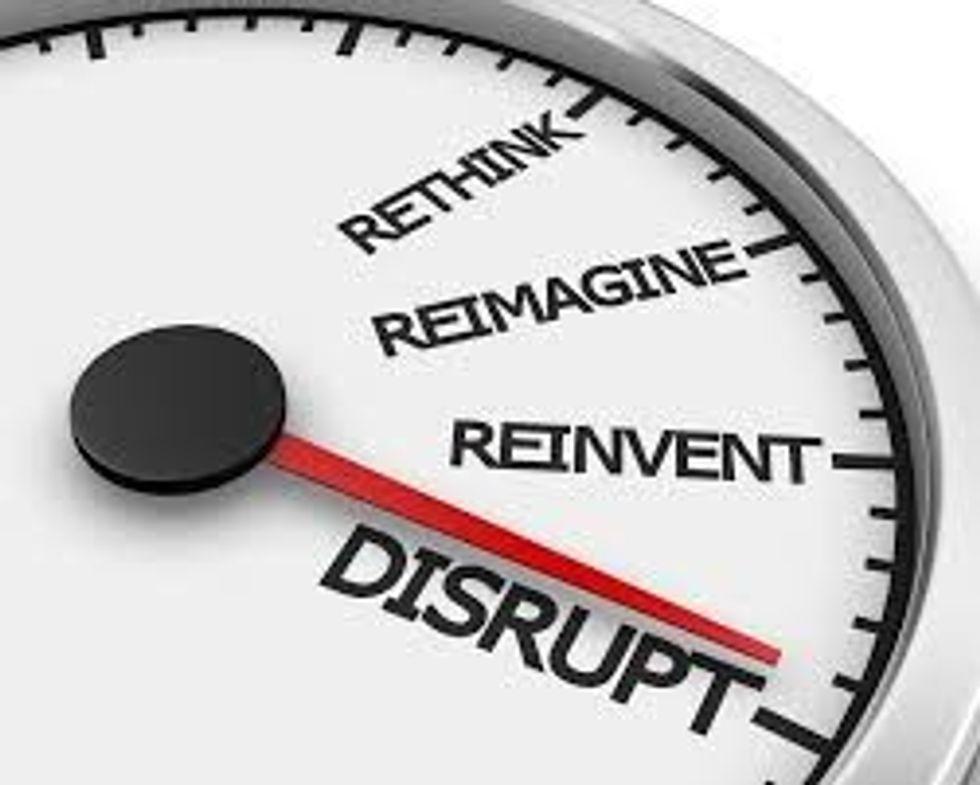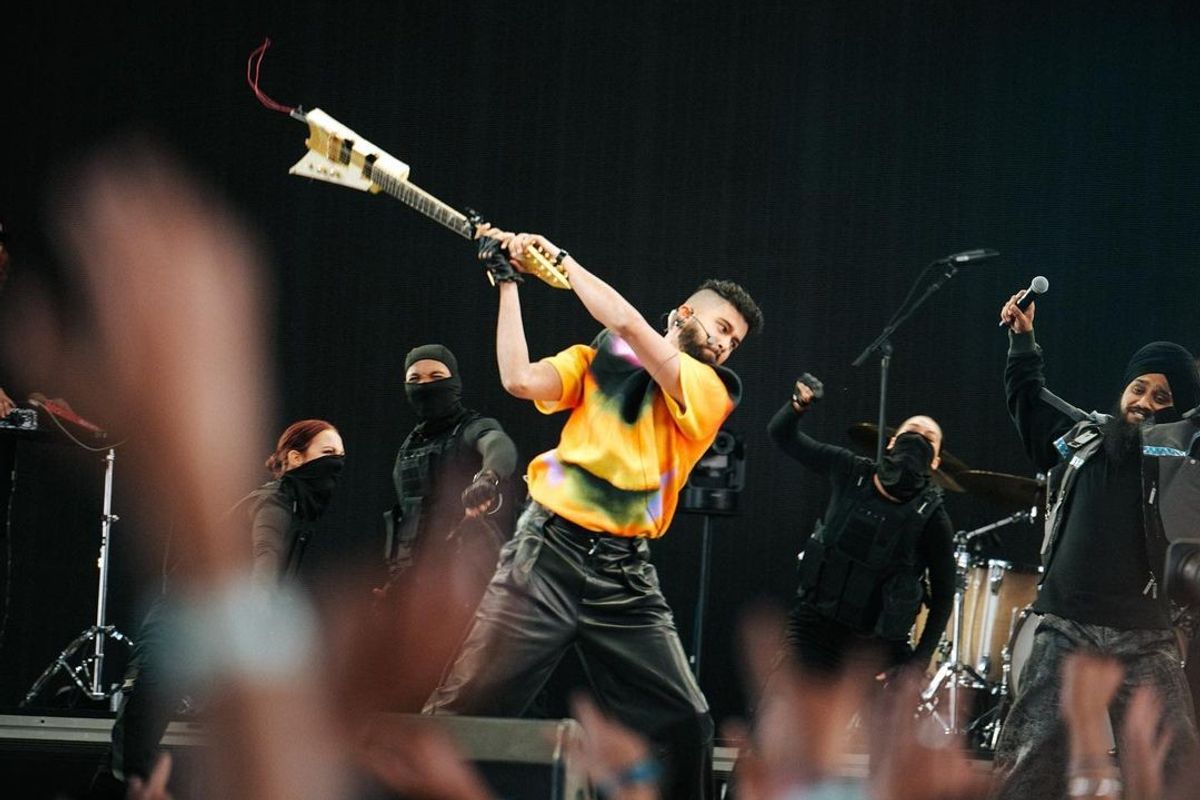Music's Future Disruptors In A Digital Universe
The future is, for most, an increasingly scary place. Making future predictions is always a risky business.

By External Source
The future is, for most, an increasingly scary place. Making future predictions is always a risky business. The famous futurist George Gilder, in the 1990s, predicted the death of television before the start of the 21st Century. A bold effort with a messy outcome for him. But all he really did was get the timing wrong – TV as we know it is rapidly changing and over the next decade will be unrecognisable from even the last ten years. No doubt about it. It is happening now.
So at the risk of getting the timing or other elements wrong, here are just some of my personal observations as to central elements in the digitally empowered future and the impact from just some of these change forces. This context from my digital wanderings and wonderings provides elements of policy challenge to all creativity and music specifically.
It offers a territory rich with paradox. Is it a potential empowered paradise or a descent into purgatory?
Let me commence the recital of core elements which I see:-
- The strong trend in power transfer to citizens will accelerate.
- They will continue to channel trust to friends and online communities of complete strangers before they trust traditional authorities, leaders and commentators or well established brands and concepts. Often the notion of ‘truth’ itself will be under ferocious attack in this process.
• Fragmentation and new fusions in many things will accelerate. The outcomes will be unpredictable – the only constant will be the necessity or inevitability of dramatic change.
• With so few barriers to entry in a digital world the cost of innovation, never lower, will continue to decline. This is crucial, representing a massive change especially for incumbent enterprises as previous protection benefits from wealth and scale progressively vanish.
• Many sustainable commercial models are either unresolved or still shaky. However, as they are worked out, much commercial carnage will follow, ensuring these will continue as choppy, uncertain times. Indeed digital models almost always tend to be really quite destructive of existing structures and modalities.
• Which means that the turbulence and speed of change, the disruption and breakup central to digital life is going to be with citizens, their governments, business, artist and other arenas for a long time; because upheaval and all its, in many ways, messy impacts has only just begun. This will require creativity and agility to respond well – both with the broad community and with the myriad niches in society.
• As part of this turbulent process, technology will continue to become an almost genetic extension of ourselves. Touch, gesture and voice commands are all becoming second nature in modern product constructs embedding technology patterns and personalities from the youngest age. The technology is now an embedded part of most of us and for the young almost core to their being.
• The new cultural paradigm is that if I can imagine it, it simply has to be there – I just have to find it (or invent it myself). A weighty reset in thinking!
• We will continue to see increasing consolidation in markets and fiercely heightened competition internationally where technology smarts define both the field of battle and success on it.
• Large international software players, who innovate for a living, will offer a stunningly wider range of content, products and services, through worldwide distribution management where geographic separation will become ever less relevant.
• Nations and their legal frameworks over time will be substantially bypassed in this process. The impact of this huge disintermediation has not yet been examined or really understood by governments. With political parties, it is almost entirely ignored. Take copyright as a pertinent example of an area under relentless attack.
• Network speeds and the ubiquitous connectivity from wireline and wireless technologies will increase relentlessly. Huge network speed and capacity expansion will be matched with ever more sophisticated software tools empowering astonishing change in the way in which we produce, manage, store, deliver and consume information and use new digital products. The dramatic implications for creators are obvious.
• Something on which there can be little debate is that mobile technology will continue to rise and rule, ensuring ubiquitous software as the dominant change force.
• Consumers now expect mobile devices to become the central controllers for other devices and services in their lives. The handy ‘computer in your pocket’ will rule the day with ever better functionality.
• Consumers will demand that a wider variety of devices work together harmoniously and seamlessly. Moreover, they will want them to work together in ways that change fundamentally how they consume and interact with content and a vast array of services. Many now expect the technology to know them and anticipate their wants and needs.
• New players and on-line providers will continue to grow and enter the Australian marketplace which will be remarkably vulnerable if it doesn’t change the current operational game. We attach too much virtue and benefit to incumbency, where many large players are unusually vulnerable because they have the wrong cultural settings often drawn from protection and an incapacity to respond swiftly with requisite dexterity.
• In this connected world societies which don’t achieve consistent innovation and productivity improvement will experience unusually harsh declines in living standards with competitive advantage vanishing quite quickly.
• The nature of work will change profoundly. People will experience much longer working lives and need regularly refreshed training.
• On all available evidence, employment levels will decline. On the one hand, automation will assert itself ever more aggressively, and on the other, there will be widespread fresh collaborative models and cross-border alliances.
• Cities will continue to grow and will depend on the quality of their distributed technology and services sophistication to maintain agreeable, competitive amenity, central to efficient work and social harmony. Great cities will have networks of deployed smart hubs with little relationship to current nineteenth-century organisational principles.
• Education, which has to date been one of the slowest respondents to change, will be revolutionised. Parents will demand new performance and efficient delivery standards in schools. The flow of talent and teaching around the world will quicken as will tough comparisons. Tertiary institutions will be judged ruthlessly across geographies with striking force by students, employers and commentators equally.
• Opportunities for artists in this digital vortex of deep community and education change will abound but only if they become energetic self-promoters and accept they have to be the drivers of their own future opportunity.
• The digital divide will be very real and will expand with the fresh irony that the wonder of all that is available will also see a new information ‘dark age’ for many who will be locked out.
• Without determined action by informed governments, cohorts of education advantage and disadvantage will expand with severe consequences as to equity, aspiration and direction.
• There will be a lightning speed in uptake of increasingly intelligent software tools with advanced learning capacity and omnipotent automation. Machine to machine conversations already central to society will expand.
• The advances in data science and analysis by statisticians will continue to prove astounding. Developments in data collection, storage and analysis – known collectively as ‘big data’ – will transform business and consumer horizons with the best-known use being in ever better refined search, intelligent learning software and new flexible stacked organisation frameworks. Presently the primary laggard in this space is government itself.
• The autonomous autarchies already enabled from internet search algorithms will continue to provide one of the most independent potent forces into unpredictable territory. It will be a force for good and bad equally, substantially outside supervision controls of governments.
• The application of search in all things from jokes to physics; real estate to recipes; employment to games and virtually all areas of human endeavour means that people will think and react very differently. Algorithm has, after all, become part of daily vocabulary.
• Enhanced reality and its devices are becoming second nature to millennials and their children and will have explosive force over the next decade.
• Fundamentally central to this new world is the augmented power of social media, based increasingly on mobility extending into active consumer directives with everything from opinions to products and services. Trust is the primary currency here, and established notions of truth may well be the main victims.
• Time is the other great currency of the era we are entering, and technology is central to managing it. Technologies we have even yet to know we want will rise powerfully and be adopted or discarded rapidly. Remember that American millennials already spend over 5 1⁄2 hours with social media daily. They check their phones at least 50 times a day and 82% sleep with their phones on!
• And therefore, of course, that ‘instant expert’, now an established part of digital social life, will become ever more irksomely pervasive!
• The interconnected nature of that generation arising from social media and constant digital engagement will see travel increase powerfully with huge social impacts in many countries affecting life partnerships, immigration, health, infrastructure, education, security and in countless other ways.
• The implications for defence priorities in military deployment and technology potentials will be in a realm which would make H G Wells, John Le Carre and Neal Stevenson gasp in disbelief. The rise of the modern ‘militarised economy’ as William Fulbright described the USA decades ago will regrettably continue inexorably – seen particularly in the United States, the Russian Federation and the People’s Republic of China. The consequences for clear thinking and informed decisions are pretty frightening.
• On the brighter side, personalised medicine and the field of genomics mapping from birth will be matter of fact realities transforming healthcare delivery. Healthcare will see a flip where it will become more about wellness management than sickness care. Electroceuticals will change therapeutic approaches to many things forever. Thank goodness as we are all going to live a heck of a lot longer!
• The consequences for such issues as sustained peace, sustainable environment approaches, and common life issues from education through the retirement age and future lifecare are only now starting to be seriously discussed. The intergenerational issues which arise are inevitably complex and costly.
• Equally importantly, notwithstanding the unpredictability and insecurity such turbulent change and consolidation generates, the opportunities will be on a very large scale and, one hopes given that so much of it is still a reflection of human creativity, compelling.
• Change is a given but the liberation to human ingenuity with this era of inventiveness unleashed and the opportunities it affords is central to our future but only if creators and imagineers can manage a pretty dramatic transition.
• From all of this transformation we will continue to see change in our political systems and the way we relate to each other as fellow citizens.
Who knows where that will take us all culturally, but the implications are quite mind shifting, going into completely unchartered territory because this journey is still in its infancy.
However, it seems clear that politicians and their parties are insufficiently engaged with these change processes and their profound implications.
– Kim Williams on Music's Digital Paradox: Paradise or Purgatory?, Australian Daily Review

















